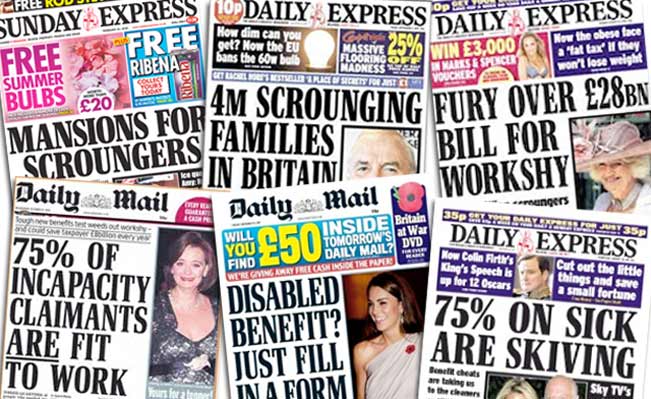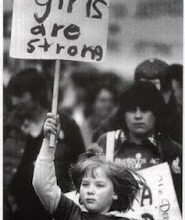
One of the core lessons from my PhD was that language matters. In my research, where I looked into job searching practices and digital exclusion, I made a conscious effort to not talk about ‘the unemployed’. Not in my thesis, not in any presentations I did, any papers I wrote or any conversation I had about it.
There are two main drivers for me doing so and advocating for avoiding the use of phrases like ‘the unemployed’ across the board. The first is because they are anything but a homogenous group.
The second is because unemployment isn’t a personal characteristic, it doesn’t define you as a person. It’s an employment status, nothing more and nothing less.
By allowing it to be more than that, it becomes a tool that those in a position of power can (ab)use to create division and stay in power.
The Other
You only need to look at how headlines and political rhetoric talk of ‘the unemployed’, ‘the homeless’, ‘immigrants’ and ‘tenants’ to see that they are seldomly used in a very positive context.
Indeed, it’s always ‘the immigrant problem’, ‘the unemployment problem’, ‘the homelessness problem’, ‘(council) estate problems’.
By grouping people following in this way, we burden them with a negative reputation that places them in a subordinate position; one that is different from what ‘good’ looks like, i.e. ‘hard working people’, ‘expats’, ‘home owners’, etc.
This difference between ‘good’ and ‘bad’ is what we know as ‘Othering’. It’s the ‘other’ that’s bad/different/evil/lazy/vile, not you. It’s what creates divisions that allow such language and narratives to become engrained in society, making sure that policies that focus punishing on ‘the other’ for their bad behaviour to keep being voted in.
How? Because people want to be part of that good group, and the easiest way to feel like that is to find faults in ‘the other’, by distinguishing themselves from those who DO conform to the image of ‘the unemployed skivers’, ‘the bad immigrants’, ‘that kind of tenant’. “It’s people like them giving people like me a bad name!”
Inclusive Language
If we want a fairer society, instead of othering each other, we need to come together. We can do so, I believe, by using more inclusive, neutral language that does not come with or encourage any value judgements and does not encourage any de-humanising, and instead focus on what people have in common rather than what differentiates them based on, for example, if we’re talking about housing matters, tenure.
Of course, there is the big customer/tenant/resident debate, where each of these terms to talk about the people paying rent to live in a housing association or local authority home has both its supporters and its haters. As it is quite an interesting and big debate, I think it’s best to talk about that another time. For now, I want to focus on inclusionary (or exclusionary) language and terminology used within the sector that I believe deserve some rethinking.
Business versus (Social) Purpose
I’d be lying if I’d deny that housing associations are businesses as well and up to a point have to be run like that. They are.
At their core they own dwellings that they rent out to people for, if all is well, truly affordable rents. They are responsible for a major part of the maintenance of these dwellings.
They have to have documents stating rules that are to be adhered to by both parties. What they don’t have to be is incomprehensible.
Rent has to be paid in exchange for living in the dwelling, as without the income the home cannot be maintained, and other services provided as part of the service level agreement cannot be funded.
You might have noticed I have used the word ‘dwelling’ multiple times now. It’s not because it is a word I used often. It’s because I didn’t want to choose a different word until I had made my point about language in the (social) housing sector.
Because social housing associations and local authorities are run as businesses, it is very easy and tempting to use business language that doesn’t differ from its for-profit cousins. Many annual and financial reports, internal communication and data use words like ‘asset’, ‘property’, ‘unit’ and ‘stock’ to talk about dwellings. They fit in neatly with the capitalist partners of many housing associations that allow them to operate, such as lenders, banks and builders.
It ain’t what you do, it’s the way that you do it…
We have to do what we need to do, action-wise, to keep our business afloat. In the case of social housing that is to make sure we can develop more homes and provide better services. But it’s the way we do it and the way we talk about and to people while doing this that sets the tone and influences or starts a relationship on a bad or good footing.
Using the same legal and technical words for all ‘official’ communication surrounding the business internally, such as units and property, makes that staff use these same words, which in turn can make tenants (my personal preference) feel like they’re just another part of the business, a source of income, and sometimes even a nuisance.
If it were up to me, and I know I’m not the only one, we use the word ‘home’ when we talk about the dwellings rented by housing providers. Regardless of tenure or (extent of) home ownership (i.e. percentage still owned by the bank…), the place where you live is (or should be) your home. Your home is where you (should) feel save, where you can be yourself, which is the basis for everything going on in your life.
To me, it’s the most important thing in someone’s life, which is why I chose to work in housing, as I want to be a part of making sure that everyone has got that place to call home. To have that safe space, that base from which everything else can flourish.
Therefore, if social housing associations and local authorities are committed to making sure these people feel at home, we should talk about these places confirming and acknowledging they are peoples’ homes.
Yes, it might be their business. But, actually, the business aim is to make sure as many people as possible have a place to call home. So, let’s join them in calling it home.
So, are you going to mention tech and data somewhere?
You might wonder what am I doing writing this in my capacity as a newbie tech/data/business consultant. And ask where is the data/tech bit of this article? What has language got to do with tech and data? Well, here it is:
I’d like to argue that it has everything to do with tech and data. Because tech and data have got everything to do with how we run the business part of social housing.
In my new job at DtL Creative we have recently started to develop Dream HA. This is a project that is part of the non-commercial ‘Blue Banana’ bit of the business where we focus, similar to SHM, on facilitating conversations, discussions and from those moving to actionable insights.
Dream HA is a fictional housing association where we are going to try to get as much right as possible. Perfect doesn’t exist, but we can at least try. Try to mix and match the best of great practice that we can find to provide the best possible service.
As we’re starting it from scratch, and because anything goes because it’s fictional, I want do do something bold.
I propose we design a completely new core system that, regardless of its functions or embeddedness within other existing systems, uses language that encourages everyone talking about tenants and their homes to use language that acknowledges just that: that we’re talking about people living in their homes. In fact, everything should be related to or consist the word ‘home’.
In the end…
- The lettings team finds new tenants for a newly available home.
- The neighbourhoods team works to make sure everyone can feel at home in their neighbourhood.
- The repairs team works to make sure people are safe in their home.
- The asset management team works to make sure the homes, both existing and new, are of a great quality.
- The income team not only collects rent but also supports people to be able to stay in their homes, even if they find themselves (temporarily) in tougher times financially or emotionally.
- Etc.
This would translate to departments, their names and the parts of a system they use to do their work as well. No longer an ‘asset management team/module’, but, for example, ‘Home Quality Team/Module’, to just pick something very obvious.
It would, I believe, also encourage our communication with and about tenants and what happens in/to their homes to be more human(ised). Not only directly, because reports, dashboards and the correspondence produced from them would be influenced by this language change.
It would also influence use of language indirectly. This is because talking of people and (their) homes instead of ‘tenancy holder’ and ‘unit’ removes some distance between ‘the business’ and the people they are serving.
It would make it more difficult to hide behind ‘the business’ and its safe language when we failed to acknowledge or fulfil our social remit and have damaged the trust people have in us.
Trust
Everything I’ve just mentioned, from language to tech and how we might use tech to change the narratives we share and perpetuate, has to do with (re)building trust. Trust. I could write another 350-page thesis about that if given the time, money and opportunity. Plus some articles to go with it, the latter of which I will probably do anyway.
By using distant and dehumanising language in rent communications, policies, reports and complaints letters, people are less likely to trust you. This can and will come back to haunt you if, for example, job loss means paying rent might become difficult and people need to trust you to not judge them and help them through this already difficult time in their lives.
They might feel judged and brought down by general language in the press and public domain about ‘people on benefits’ and ‘the unemployed’ already and won’t feel the need to be judged or dismissed by their landlord as well, even though that might not be the case at all.
If I were a social landlord, I’d want people to know that I have their best interests at heart. I’d want them to know that I acknowledge them as a person and not just a rent account. I’d want them to know that, even though there is a business to run and rules to follow, I am fulfilling my social purpose. It’s also ; it’s also making sure that people have at least one bit of society where their tenure does not define them.
So now what?
I haven’t got everything figured out yet. To my own disappointment I haven’t produced a ‘housing dictionary’ that can shape the future of the language used across the business. But, what I do know that the conversation about language we must have and keep having.
We cannot ignore some legal frameworks in which we must operate and where adopting language to use within these frameworks, but it could well be that we could set up our data output to satisfy those (often external) stakeholders in such a way that it does not influence our internal communication, approach and focus.
I’d like to think and talk more about that in the future! So, I welcome any ideas, caveats, critiques and commentary on all of this. Get in touch via gaby@socialhousingmatters.co.uk and/or follow me on Twitter at @drgabywolferink.



